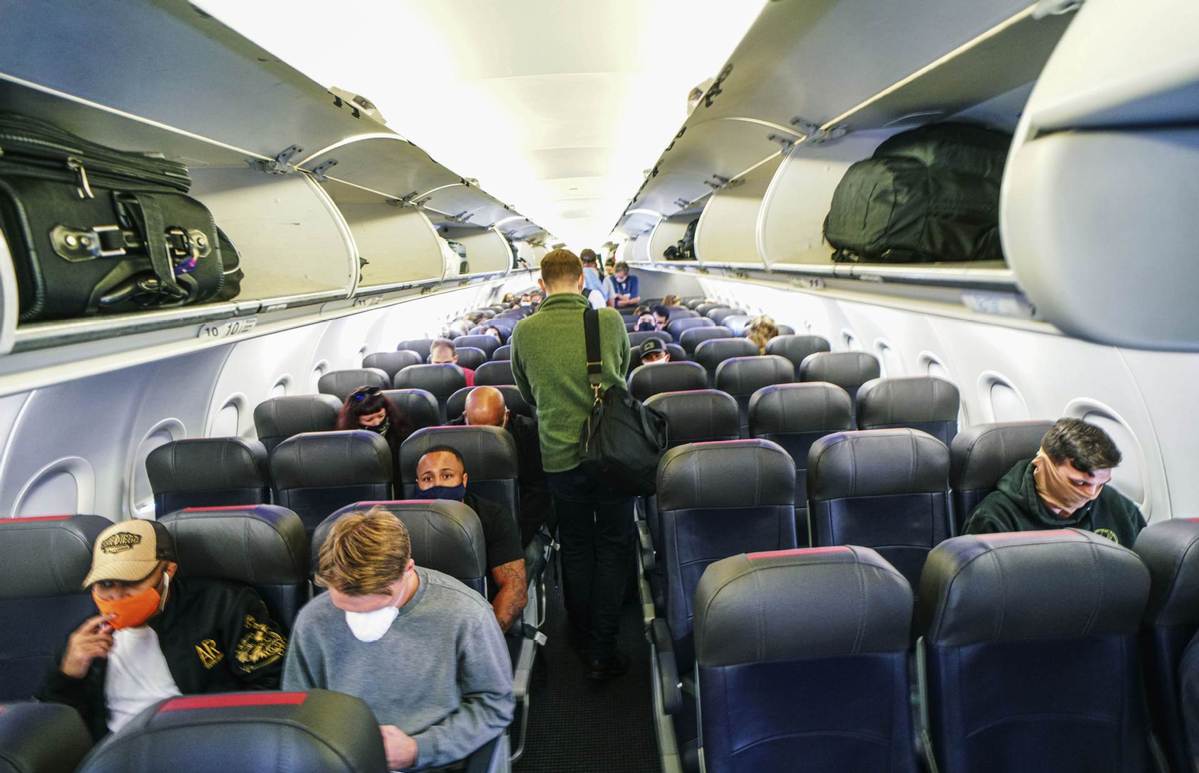American, United airlines toughen face mask rules


American and United airlines say they will place passengers who refuse to wear a face mask on an "internal travel restriction list" and bar them from future flights for an indeterminate period.
Beginning on Tuesday at American and Thursday at United, passengers who do not wear a mask while traveling could be flagged for each airline's list of restricted flyers, possibly causing them to be barred from flying with the carrier again, the carriers announced on Monday.
United offered slightly more details in announcing its policy, saying that the travel prohibition would last for a period of time that will be determined by the company after a "comprehensive incident review".
The trade group Airlines for America said its other member carriers, which include Alaska, American, Delta, Hawaiian, JetBlue and Southwest, will be implementing stricter face-mask rules, including possible bans for passengers who don't follow the rules.
American and United required the use of face masks for passengers and crew last month and said the new rule would be enforced for at least the next 60 days.
"Every reputable health institution says wearing a mask is one of the most effective things people can do to protect others from contracting COVID-19, especially in places like an aircraft, where social distancing is a challenge," Toby Enqvist, United's chief customer officer, said in a statement.
"We have been requiring our customers to wear masks onboard United aircraft since May 4 and we have been pleased that the overwhelming majority of passengers readily comply with our policy."
Under the new policy, flight attendants will ask a passenger without a face mask to don one and offer a mask if needed. If the passenger refuses to wear a mask, the flight attendant will note the incident, and a formal review will begin.
Willful refusal to wear a mask can mean the passenger will be prohibited from traveling on United for a yet-to-be-determined period, the airline said.
"Wearing a mask is a critical part of helping make air travel safer," Dr James Merlino, chief clinical officer at the Cleveland Clinic, said in a statement."The more people in a given space wearing masks, the fewer viral particles are making it into the space around them, decreasing exposure risk."
Allegiant Air, a discount carrier linking cities with less populated areas, offers passengers a single-use face mask, but doesn't require its use. The airline said most passengers voluntarily wear a mask.
"US airlines are very serious about requiring face coverings on their flights," Nicholas Calio, president of Airlines for America, a trade group based in Washington, said in a statement.
"Face coverings are one of several public health measures recommended by the Centers for Disease Control and Prevention as an important layer of protection for passengers and customer-facing employees."
Requiring masks for passengers is part of the effort by airlines to convince customers that air travel is safe and lure them back after the novel coronavirus shutdown.
In April, air travel plunged about 95 percent from the same period a year ago based on the number of passengers screened at airports by the US Transportation Security Administration.
Analysts believe it could take 18 to 24 months for commercial and recreational air travel to return to pre-pandemic levels.
Many people are apparently opting for a "staycation", or remaining at home rather than traveling during vacation.
A survey published by Longwoods International, a market research firm based in Columbus, Ohio, concentrating on the travel industry, concluded that 82 percent of Americans have changed travel plans for at least the next six months due to the coronavirus pandemic.
Fifty percent of the 1,000 adults surveyed said they planned to cancel trips and 45 percent said they planned to reduce travel in the next six months.
"What we have seen since the country went into shutdown is that intent was directionally heading up," Amir Eylon CEO of Longwoods, said in a statement.































